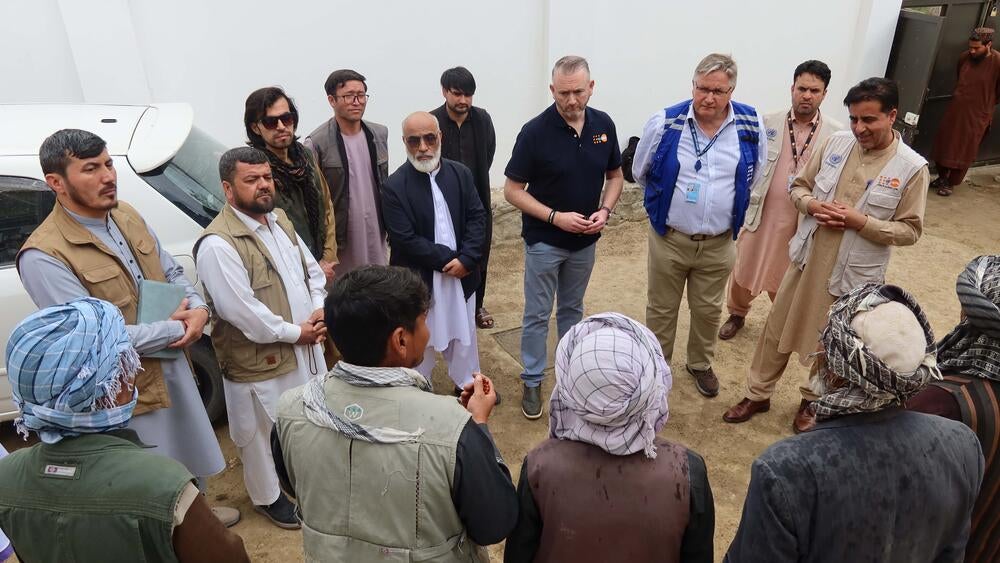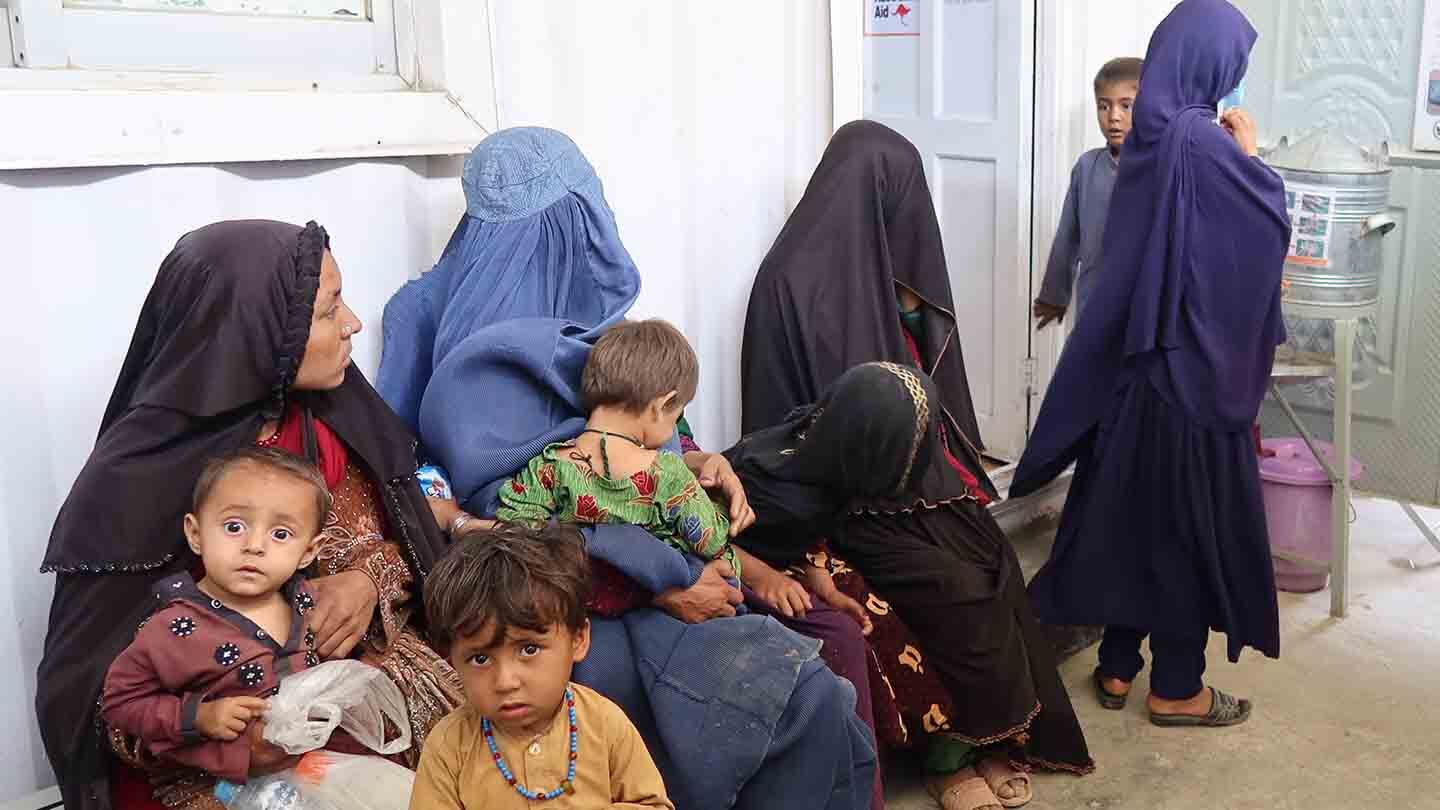Kabul, Afghanistan – Critical funding shortfalls threaten the increasing needs of crisis-affected people in Afghanistan, particularly for 7.3 million Afghans - 70 per cent of them women and girls - who require access to lifesaving reproductive health and psychosocial support services, amidst the reduction in global funding for humanitarian assistance.
In a recent mission to Afghanistan, Mr. Andrew Saberton, UN Assistant Secretary-General and Deputy Executive Director for Management of UNFPA, the United Nations Population Fund, witnessed the influx of Afghan returnees at the Torkham border with Pakistan and the critical need for maternal healthcare and mental health services for women and girls.
“I witnessed people returning – women, whole families, many young children – frightened and bringing very little with them,” Mr. Saberton noted. “Many of the women are pregnant and have small children. They don't know what awaits them. Some of those returning have never actually lived in Afghanistan.”
UNFPA supports a basic health centre at the Torkham border, facilitating the delivery of reproductive, maternal, newborn, child and adolescent health and psychosocial support services to the returning refugees, particularly women, girls and children.
“We learned about a 15-year-old girl who used our psychosocial services. She has a one-and-a-half-year-old child. She was depressed, having had to move from a home in an emergency. She just needed someone to listen, someone to give her advice, and that's exactly what our psychosocial services do in Torkham,” Mr. Saberton said.
A few kilometers away, at the Omari temporary camp for the returnees, UNFPA also provides services at the Emergency Maternity Clinic, where over a hundred women have delivered since the mass deportations from Pakistan started in the last quarter of 2023.

In the province of Bamyan in the central highlands of Afghanistan, Mr. Saberton visited a Family Health House, a birthing facility that also provides other basic health services to the isolated communities around it. Some of the women he met walked for two hours with their young children to receive health services from the health facility.
“There is so much great work that UNFPA is doing, meeting the lifesaving reproductive health and psychosocial support needs of the returning refugees and people living in the most remote and hard-to-reach areas in Afghanistan,” Mr. Saberton said. “The work we're doing is improving the health and well-being of women and girls who are most marginalized, and increasing the capacity of health services in the country.”
"Most importantly, what I've seen is actually how the communities we are working in have embraced our work. And so this work is improving the well-being of the people and we are helping increase the capacity of the health service in this country," he added.
Funding gaps continue to threaten the continuity of care in Afghanistan. Without additional support, hundreds of UNFPA-supported health facilities will be forced to close in the coming months, leaving around 6.3 million people, mostly women and girls, without access to lifesaving reproductive health, maternal care, and psychosocial services.


